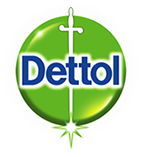
Good personal hygiene is essential in helping to prevent the development and spread of infections and illnesses, both in the home and elsewhere.
Handwashing
Why is handwashing so important?
Hand washing is one of the most important ways of stopping germs
spreading. You should wash your hand whenever they look dirty, but
also before and after certain tasks.
Before what activities do I need to wash my hands?
It’s most important to wash your hands before food preparation,
including any baby feeds, eating, applying contact lenses,
dressing a wound or applying medication.
After what activities do I need to wash my hands?
Using the toilet or changing a baby’s nappy, handling raw food,
touching animals or pets, after contact with blood or body fluid
(vomit, nasal secretions, saliva), after touching a contaminated
or potentially contaminated item (cleaning cloth, drain, soil) and
after general cleaning.
What’s the best way to wash my hands properly?
To ensure that your hands are properly clean, you should wet them
then use bar or liquid soap and rub together your palms, the backs
of your hands, your thumbs, between your fingers, and under and
around your nails for at least 20 seconds before rinsing under
clean, running water.
How can I keep my hands clean if there is no soap and water
available?
Hand sanitisers are designed to kill germs on hands that are not
visibly dirty.
Personal Hygiene Routine
How can I keep myself clean on a daily basis?
Avoid sharing personal care items such as toothbrushes, razors,
cosmetics, wash cloths and towels, and shower or bathe every day
before applying a deodorant or antiperspirant. Change your
underclothes and socks/tights every day and launder these items
and the rest of your family’s clothes and towels regularly. Brush
your teeth twice a day, including just before you go to bed and
keep your nails short and clean.
How can I treat dandruff and spots?
The best dandruff treatment is to use an anti-dandruff or
anti-fungal shampoo, as these contain active ingredients to fight
against the condition. Washing twice daily with a mild cleansing
agent should help keep spots under control, along with a diet high
in Vitamin A and drinking lots of clean water.
Colds and Flu
How can I protect myself and my family from colds and flu?
Frequently washing your hands with soap and water or using a hand
sanitiser will help reduce the spread of cold and flu. You should
also cover your mouth and nose with a tissue when you cough or
sneeze, and dispose of the used tissue in the bin. Remember to
wash your hands afterwards. Regularly cleaning and disinfecting
frequently touched surfaces around the home will also help reduce
the spread.
What’s the difference between a cold and the flu?
Colds and flu are both caused by viruses, and some of the symptoms
are the same. However, flu is usually a much more severe illness
and the symptoms typically include a sudden fever, body aches, and
extreme tiredness.
Should I get a flu vaccination?
Yes, if you are considered to be in the ‘at risk’ group of people,
which includes pregnant women, young children, those with chronic
lung diseases, the elderly, carers, and those people living in
long-stay residential homes or other long-stay facilities.
First Aid
How can I treat a minor wound?
Thoroughly clean any cuts or wounds as soon as possible then apply
an antiseptic cream or ointment and cover them with a plaster or
bandage. You may also need a tetanus jab (vaccine) if the injury
has broken your skin and your tetanus vaccinations aren’t up to
date.
